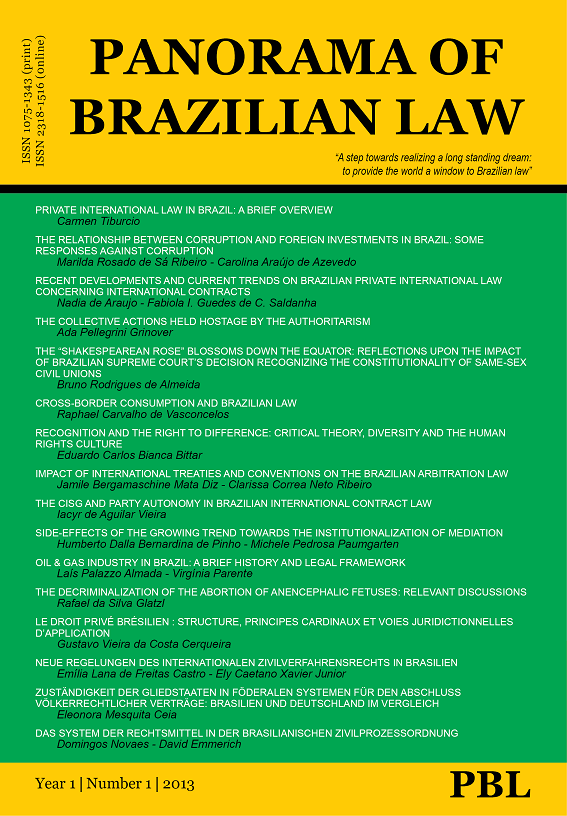RECENT DEVELOPMENTS AND CURRENT TRENDS ON BRAZILIAN PRIVATE INTERNATIONAL LAW CONCERNING INTERNATIONAL CONTRACTS
Abstract
This work aims to present the recent changes and the current trends of Brazilian Private International Law in the area of international contracts with especial focus on the enforcement of Convention on the International Sale of Goods (CISG) in Brazilian legal order. Historically, the recognition of party autonomy in Private International Law has not been uniformily recognized. While since 1996, with the enforcement of the new Arbitration Law, party autonomy has been increasingly accepted in terms of international arbitration, jurisprudence on the choice of law and the choice of court clauses does not show the same progress. In fact, despite of important documents which have already been signed by the government, Brazilian Private International Law of Contracts still dates from 1942. Such contrast with internal material law represents a challenge for the full recognition of Party Autonmy in Brazilian Private International Law.Downloads
Published
2013-05-30
How to Cite
Araújo, N. de, & Saldanha, F. I. G. de C. (2013). RECENT DEVELOPMENTS AND CURRENT TRENDS ON BRAZILIAN PRIVATE INTERNATIONAL LAW CONCERNING INTERNATIONAL CONTRACTS. PANORAMA OF BRAZILIAN LAW, 1(1), 73–83. Retrieved from https://www.e-publicacoes.uerj.br/pbl/article/view/34359
Issue
Section
Articles
License
Panorama of Brazilian Law employs Open Journal Access policies.
Authors are fully and exclusively responsible for their submissions.
Authors who publish with this journal agree to the following terms:
- Authors retain copyright and grant the journal right of first publication with the work simultaneously licensed under a Creative Commons Attribution-NonCommercial-ShareAlike 4.0 International License that allows others to share the work on a non-comercial basis with an acknowledgement of the work's authorship and initial publication in this journal and indicating if any changes were made. If you remix, transform, or build upon the material, you must distribute your contributions under the same license as the original.
- Authors are able to enter into separate, additional contractual arrangements for the non-exclusive distribution of the journal's published version of the work (e.g., post it to an institutional repository or publish it in a book), with an acknowledgement of its initial publication in this journal.

